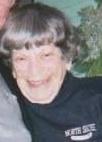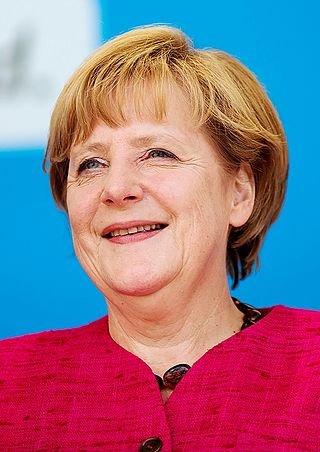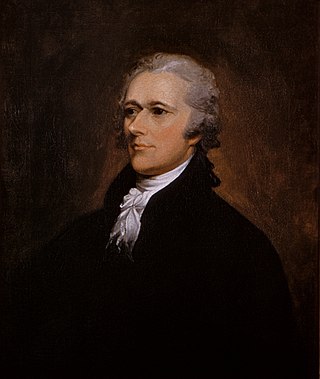Related Research Articles

Proportional representation (PR) refers to any type of electoral system under which subgroups of an electorate are reflected proportionately in the elected body. The concept applies mainly to political divisions among voters. The essence of such systems is that all votes cast – or almost all votes cast – contribute to the result and are effectively used to help elect someone – not just a bare plurality or (exclusively) the majority – and that the system produces mixed, balanced representation reflecting how votes are cast.
Creative Commons (CC) is an American non-profit organization and international network devoted to educational access and expanding the range of creative works available for others to build upon legally and to share. The organization has released several copyright licenses, known as Creative Commons licenses, free of charge to the public. These licenses allow authors of creative works to communicate which rights they reserve and which rights they waive for the benefit of recipients or other creators. An easy-to-understand one-page explanation of rights, with associated visual symbols, explains the specifics of each Creative Commons license. Content owners still maintain their copyright, but Creative Commons licenses give standard releases that replace the individual negotiations for specific rights between copyright owner (licensor) and licensee, that are necessary under an "all rights reserved" copyright management.

Lester Lawrence Lessig III is an American legal scholar and political activist. He is the Roy L. Furman Professor of Law at Harvard Law School and the former director of the Edmond J. Safra Center for Ethics at Harvard University. He is the founder of Creative Commons and of Equal Citizens. Lessig was a candidate for the Democratic Party's nomination for president of the United States in the 2016 U.S. presidential election but withdrew before the primaries.

Electoral reform in New Zealand has been a political issue in the past as major changes have been made to both parliamentary and local government electoral systems.

In American politics, a swing state is any state that could reasonably be won by either the Democratic or Republican candidate in a statewide election, most often referring to presidential elections, by a swing in votes. These states are usually targeted by both major-party campaigns, especially in competitive elections. Meanwhile, the states that regularly lean to a single party are known as "safe states", as it is generally assumed that one candidate has a base of support from which a sufficient share of the electorate can be drawn without significant investment or effort by the campaign.

Doris "Granny D" Haddock was an American political activist from New Hampshire. Haddock achieved national fame when, between the ages of 88 and 90, starting on January 1, 1999, and culminating on February 29, 2000, she walked over 3,200 miles (5,100 km) across the continental United States to advocate for campaign finance reform. In 2004, she ran unsuccessfully as a Democratic challenger to incumbent Republican Judd Gregg in the U.S. Senate election in New Hampshire.
Electoral reform in the United States refers to efforts to change American elections and the electoral system used in the United States.

Federal elections were held on 22 September to elect the members of the 18th Bundestag of Germany. At stake were all 598 seats to the Bundestag, plus 33 overhang seats determined thereafter. The Christian Democratic Union of Germany/Christian Social Union of Bavaria (CDU/CSU) of incumbent chancellor Angela Merkel won their best result since 1990 with nearly 42% of the vote and nearly 50% of the seats, just five short for an overall majority. The Free Democratic Party (FDP) failed to meet the 5% vote electoral threshold in what was their worst showing ever in a federal election, denying them seats in the Bundestag for the first time in their history.

The 2016 United States presidential election was the 58th quadrennial presidential election, held on Tuesday, November 8, 2016. The Republican ticket, businessman Donald Trump and Indiana governor Mike Pence defeated the Democratic ticket of former secretary of state and First Lady of the United States Hillary Clinton and the junior senator from Virginia, Tim Kaine, in what was considered one of the biggest political upsets in American history. It was also the sixth presidential election in which both major party candidates were registered in the same home state; the others have been in 1860, 1904, 1920, 1940, and 1944.
Electoral reform is a change in electoral systems which alters how public desires are expressed in election results.
This article contains lists of official and potential third-party and independent candidates associated with the 2016 United States presidential election.

Mayday PAC is an American crowd-funded non-partisan Super PAC created by Harvard Law School professor and activist Lawrence Lessig. Its purpose is to help elect candidates to the Congress to pass campaign finance reform. It is notable for raising large sums from numerous contributors in a short span of time – nearly $11 million in 2014 – and was described in the Los Angeles Times as the "super PAC to end all super PACs." The group spent over $10 million in the November 2014 elections, but its strategic plan of electing candidates friendly to campaign finance reform failed.
This is a list of endorsements for declared candidates for the Democratic primaries for the 2016 United States presidential election.

The 2016 presidential campaign of Lawrence Lessig, a law professor at Harvard University and cofounder of Creative Commons, was formally announced on September 6, 2015, as Lessig confirmed his intentions to run for the Democratic Party's nomination for President of the United States in 2016. Lessig had promised to run if his exploratory committee raised $1 million by Labor Day, which it accomplished one day early. He described his candidacy as a referendum on campaign finance reform and electoral reform legislation.

The Citizen Equality Act of 2017 is a draft piece of legislation proposed by former 2016 American presidential candidate Lawrence Lessig. The act was the centerpiece of Lessig's campaign platform, encompassing his plans to improve political equality including campaign finance reform, expansion of voting access, and revised districting laws. Lessig had stated that if elected, he would make these reforms the first priority of his presidency. At the start of his campaign, he announced his candidacy as a "referendum," stating that he would step down upon the enactment of the Citizen Equality Act and turn the presidency over to the vice president. In an October 2015 interview on HBO's Real Time with Bill Maher, he retracted this statement and expressed his intention to stay on as president if elected. On November 2, 2015, Lessig ended his bid for the presidency, citing changes in Democratic Party rules that excluded him from the stage during televised debates.
A campaign finance reform amendment refers to any proposed amendment to the United States Constitution to authorize greater restrictions on spending related to political speech, and to overturn Supreme Court rulings which have narrowed such laws under the First Amendment. Several amendments have been filed since Citizens United v. Federal Election Commission and the Occupy movement.

General elections were held in the Netherlands from 15 to 17 March 2021 to elect all 150 members of the House of Representatives. Following the elections and lengthy coalition formation talks, the sitting government remained in power.

In the 2016 United States presidential election, ten members of the Electoral College voted or attempted to vote for a candidate different from the ones to whom they were pledged. Three of these votes were invalidated under the faithless elector laws of their respective states, and the elector either subsequently voted for the pledged candidate or was replaced by someone who did. Although there had been a combined total of 155 instances of individual electors voting faithlessly prior to 2016 in over two centuries of previous US presidential elections, 2016 was the first election in over a hundred years in which multiple electors worked to alter the result of the election.
Equal Citizens is an American non-profit, non-partisan group that is "dedicated to reforms that will achieve citizen equality". It was founded in late 2016 by Harvard Law professor Lawrence Lessig to continue the effort to bring about the set of reforms he proposed during his 2016 presidential campaign. Notably, as its inaugural campaign, the group launched "Electors Trust" immediately after the 2016 general election. They did this to provide free and strictly confidential legal support to any elector who wished to vote their conscience. Working together with several other groups, such as the Hamilton Electors and celebrities, the campaign resulted in the largest number of "faithless" electoral votes ever cast in a single presidential election.
Chiafalo v. Washington, 591 U.S. ___ (2020), was a United States Supreme Court case on the issue of "faithless electors" in the Electoral College stemming from the 2016 United States presidential election. The Court ruled unanimously, by a vote of 9–0, that states have the ability to enforce an elector's pledge in presidential elections. Chiafalo deals with electors who received US$1,000 fines for not voting for the nominees of their party in the state of Washington. The case was originally consolidated with Colorado Department of State v. Baca, 591 U.S. ___ (2020), a similar case based on a challenge to a Colorado law providing for the removal and replacement of an elector who does not vote for the presidential candidate who received the most votes in the state, with the electors claiming they have discretion to vote as they choose under the Twelfth Amendment to the United States Constitution. On March 10, 2020, Justice Sonia Sotomayor recused herself in the Colorado case due to a prior relationship to a respondent, and the cases were decided separately on July 6, 2020. Baca was a per curiam decision that followed from the unanimous ruling in Chiafalo against the faithless electors and in favor of the state.
References
- ↑ "Coalition for Open Democracy Form 990 2015". ProPublica. 9 May 2013. Archived from the original on 5 July 2020. Retrieved 15 September 2017.
- ↑ "Open Democracy Announces New Executive Director, Olivia Zink". New Hampshire Labor News. April 8, 2016. Archived from the original on 15 September 2017. Retrieved 15 September 2017.
- ↑ Taormina, Barbara (January 25, 2015). "Dan Weeks: Democracy where everyone has an equal voice". New Hampshire Union Leader. Archived from the original on 24 January 2018. Retrieved 15 September 2017.
- ↑ A Quote to Remember - Granny D, archived from the original on 2014-10-19, retrieved 2017-09-15
- ↑ Kanner, Matt (July 6, 2015). "Granny D walkers prepare to march". portsmouthnh.com. Archived from the original on 15 September 2017. Retrieved 15 September 2017.
- ↑ Lessig, Lawrence (September 13, 2017). "The Time Has Come: Reform the Electoral College Now". Daily Beast. Archived from the original on 16 September 2017. Retrieved 15 September 2017.
- ↑ Piedad, Jan Ross (October 10, 2017). "Lawrence Lessig: It's Time To Reform The Electoral College". Texas Public Radio. Archived from the original on 10 October 2017. Retrieved 10 October 2017.